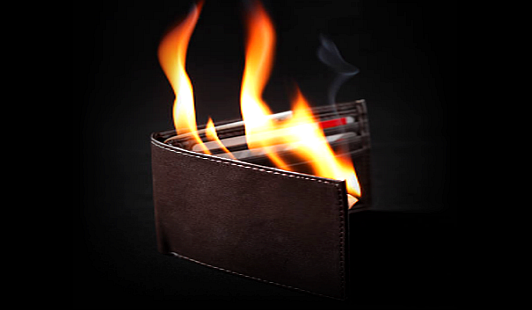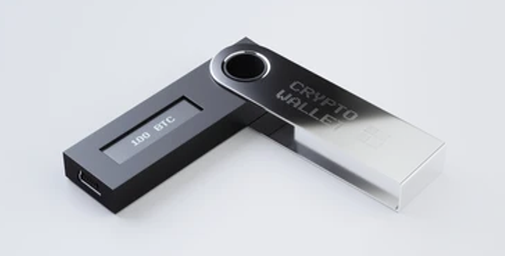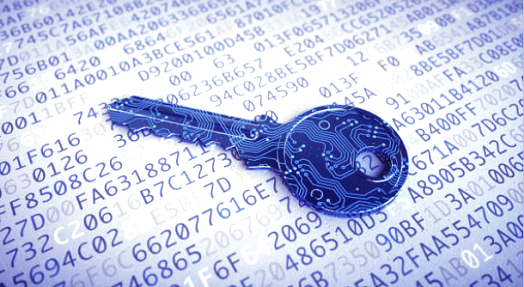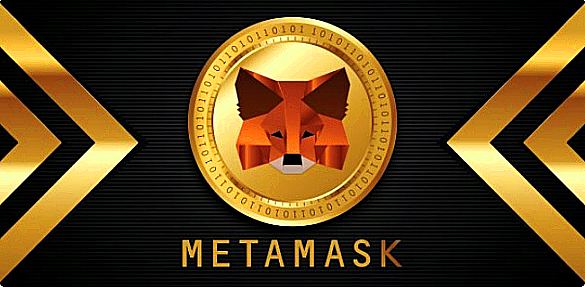Accredited InvestorsAltcoinAnatoli UnitskyAnti-Money Laundering (AML) In CryptoAPIArbitrageArtCoin TokenArticle DirectoryASICAuction Terminology GlossaryBasics of Stock Market InvestingBear MarketBest Crypto Payment Provider In the WorldBitcoinBlockchainBlockchain ConfirmationBlockchain Consensus MechanismBlockchain ForkBlockchain GlossaryBored Ape Yacht ClubBuild a Business That OutperformsBull MarketBuying SkyWay SharesByzantine Fault Tolerance (BFT) ExplainedCasascius CoinCentral Bank Digital Currency (CBDC)Centralized Crypto ExchangeCoinCoinsetCold WalletCollateralCommodity Futures Trading Commission (CFTC)Cross-Chain TechnologyCRUCrypto ExchangeCrypto GlossaryCrypto JokesCrypto Terms to KnowCrypto TickerCryptocurrencyCryptographyCryptojackingCryptounit BlockchainCryptounit GlossaryCryptounit ProgramdApp (Decentralized Application)Dead CoinDecentralized Exchange (DEX)Decentralized Finance (DeFi)Difference Between Bitcoin and EthereumDifferent Ways of Investing MoneyDigital CurrencyDistributed LedgerDo Your Own Research (DYOR)Dollar Cost Averaging (DCA)Dow Jones Industrial Average (DJIA)EncryptionERC-20ERC-721EthereumEvoScentFear Of Missing Out (FOMO)Fear, Uncertainty and Doubt (FUD)Fiat MoneyFNT Fintech CompanyGenesis BlockGlobal Unit PayGlossary of Banking TermsGlossary of Business TermsGlossary of Financial TermsHalvingHODLHot WalletHow Do I Start InvestingHow Rich is Satoshi Nakamoto?How to Create a BlockchainHow to Find Private InvestorsHow to Get Into FintechHow to Program Smart ContractsI Am Thrilled to Be a Part of This Global ProjectInitial Coin Offering (ICO)Initial Public Offering (IPO)Initial Token Offering (ITO)Innovation Basalt TechnologyInnovative Transportation TechnologiesInternational Bank Account Number (IBAN)Investing in Gold Mining StocksInvesting in Gold MiningJagerJoy of Missing Out (JOMO)Know Your Customer (KYC)LedgerLiquidity in CryptocurrencyMaker and Taker Fees in Crypto TradingMarket Capitalization (Market Cap)Meme CoinMetal Credit CardMetaMaskMillenials Now Have Access to Generational WealthMy Best Investment EverNew Digital EvolutionNFT GlossaryOff-Chain TransactionsOn-Chain TransactionsOpen Edition NFTPeer-to-Peer (P2P)Personal Loan GlossaryProbably the Best STO on the MarketProof of Stake (PoS)Real Estate Glossary of TermsReal Estate Investing GlossaryRebase TokenSecurities and Exchange Commission (SEC)Security Token ExchangesSecurity Token Offering (STO)Soulbound Decentralized Identities for Security TokensSoulbound ID Launch by Stobox Proves a SuccessSoulbound TokensStoboxStock Market GlossaryTestimonialsTether Platform and Token (USDT)UnitEx ExchangeUnitsky String TechnologiesUNTBUSDUValidatorWe Started Investing When We Were 25What are Blue Chip NFT?What are Blue Chip Stocks?What are Crypto Assets?What are Crypto Smart Contracts?What are CryptoPunks NFT?What are Digital Assets?What are Digital Collectibles?What are Gas Fees?What are Gas Wars?What are Hashmasks?What are Non Fungible Tokens?What are Non-Sufficient Funds (NSF)?What are Soulbound Tokens (SBT)?What are Stablecoins in Crypto?What are Transactions Per Second (TPS)?What are Utility NFTs?What are Utility Tokens?What Does Burning Crypto Mean?What Does Diamond Hands Mean?What Does Paper Hands Mean?What Does To The Moon Mean?What Does WAGMI Mean?What Happened to Satoshi Nakamoto?What is a 51% Attack?What is a Baby Boomer?What is a Backlink?What is a Banner?What is a Barcode?What is a Bid-Ask Spread in Crypto?What is a Block in Blockchain?What is a Block Reward?What is a Blockchain Address?What is a Blockchain Node?What is a Blockchain Oracle?What is a Blog?What is a Bond?What is a Bot?What is a Broker?What is a Business Accelerator?What is a Cash Cow?What is a Commercial Bank?What is a Commodity?What is a Con?What is a Credit?What is a Credit Limit?What is a Credit Rating?What is a Crypto Airdrop?What is a Crypto Bridge?What is a Crypto Scam?What is a Crypto Token?What is a Crypto Wallet?What is a Crypto Whale?What is a Crypto Winter?What is a Cryptocurrency Public Ledger?What is a Cryptocurrency Roadmap?What is a DAO?What is a Dark Pool?What is a Day Trader?What is a Dead Cat Bounce?What is a Default?What is a Derivative?What is a Digital Credit Card?What is a Fiscal Quarter?What is a Fungible Token?What is a Governance Token?What is a Grace Period?What is a Hard Fork?What is a Hot Wallet?What is a Hybrid Blockchain?What is a Hybrid PoW/PoS?What is a Joint Account?What is a Market Cap?What is a Merkle Tree in Blockchain?What is a Mining Farm?What is a Nonce? What is a PFP NFT?What is a POS System?What is a Prepaid Card?What is a Private Blockchain?What is a Private Key?What is a Public Blockchain?What is a Public Key?What is a Reserve Currency?What is a Ring Signature?What is a Routing Number?What is a Rug Pull in Crypto?What is a Safe Deposit Box?What is a Satoshi?What is a Security Token?What is a Seed Phrase?What is a Shitcoin?What is a Sidechain?What is a Soft Fork?What is a Spot Market?What is a State Bank?What is a SWIFT Code?What is a Tax Identification Number (TIN)?What is a Time Deposit?What is a Transaction Account?What is a Variable Interest Rate?What is a Virtual Assistant (VA)?What is a Virtual Card?What is a Virtual Currency?What is a Visa Card?What is a Whitelist in Crypto?What is a Whitepaper?What is Accounts Payable (AP)?What is AMA in Crypto?What is Amortization?What is an Accrual?What is an ACH Transfer?What is an Actuary?What is an Addendum?What is an Algorithm?What is an Angel Investor?What is an Annuity?What is an Asset?What is an ATM?What is an Atomic Swap?What is an Audit?What is an Avatar?What is an EIN?What is an Embargo?What is an Entrepreneur?What is an IDO (Initial Dex Offering)?What is an Interest Rate?What is an Internet cookie?What is an Investment Bank?What is an NFT Drop?What is an NFT Floor Price?What is an Ommer Block?What is an Orphan Block?What is an Outstanding Check?What is an Overdraft?What is Artificial Intelligence (AI)?What is B2B (Business-to-Business)?What is B2G (Business-to-Government)?What is Bartering?What is Bitcoin Dominance?What is Bitcoin Pizza Day?What is Blockchain Immutability?What is Blockchain Used For?What is BRICS?What is Business-to-Consumer (B2C)?What is C2C (Customer to Customer)?What is Capitalism?What is Catfishing?What is CFD Trading?What is Check Kiting?What is Cloud Mining?What is Communism?What is Content Marketing?What is Decentralization in Blockchain?What is DeFi in Crypto?What is Delisting?What is Depreciation?What is Digital Marketing?What is Diversification?What is Double Spending?What is Dumb Money?What is Dumping?What is Earnings Per Share (EPS)?What is Economics?What is Email Marketing?What is Equity?What is Etherscan?What is Fintech?What is Foreign currency?What is Forex?What is Fundamental Analysis (FA)?What is GameFi?What is Generative Art NFT?What is Gwei?What is Hard Currency?What is Hash Rate?What is Hashing in Blockchain?What is Inflation?What is Initial Game Offering (IGO)?What is Interest?What is Interest Income?What is Mainnet?What is Mastercard?What is Metaverse in Crypto?What is Mining in Cryptocurrency?What is Minting NFT?What is Mobile Banking?What is Money Laundering?What is NFT Alpha?What is NFT Metadata?What is NFT Rarity?What is NGMI Meaning?What is Nominal Interest Rate?What is Online Banking?What is Open-End Credit?What is OpenSea NFT Marketplace?What is Personal Identification Number (PIN)?What is Play-to-Earn?What is Polygon?What is Proof of Authority (PoA)?What is Proof of Work (PoW)?What is Public Key Cryptography?What is Pump and Dump?What is Quantum Computing?What is Refinancing?What is Retail Banking?What is Ripple?What is Sharding?What is Slippage in Crypto?What is Smart Money?What is Solvency?What is Soulbound ID?What is SSL?What is Staking in Cryptocurrency?What is Technical Analysis (TA)?What is Testnet?What is the Ask Price?What is the Better Business Bureau (BBB)?What is the Bid Price?What is the Dark Web?What is the InterPlanetary File System (IPFS)?What is the Gold Standard?What is the Lightning Network?What is the Prime Rate?What is the Sandbox?What is the Secondary Market?What is the World Bank?What is Tier 1 Capital?What is Tokenomics?What is TRC-20?What is Universal Banking?What is Unspent Transaction Output (UTXO)?What is Usury?What is Volatility in Crypto?What is Wash Trading?What is Web3?What is Whisper?What is XRP?What is Zero-Knowledge Proof (ZKP)?Who is Beeple?Who is Satoshi Nakamoto?Who is Vitalik Buterin?Why Tokenization is a Safe HavenWhy You Should Try Your Hand at Trading
Hot Wallet
- Home
- Cryptounit Glossary
- Hot Wallet
Crypto owners need a wallet, but selecting the right one can be difficult with the variety of options. While all types of crypto wallets serve a unique purpose, they can be divided into two main categories: hot and cold wallets.

What is a Hot Wallet?
A hot wallet is a type of wallet that is connected to the internet. It is used for storing and managing digital assets that are frequently traded or used for daily transactions.
Unlike cold wallets, which are disconnected from the internet and therefore less susceptible to cyber attacks, hot wallets are more vulnerable to hacking and other security threats. This is why it's recommended that users only store a limited amount of their cryptocurrency in a hot wallet, and keep the bulk of their assets in a secure, offline cold wallet.
One of the advantages of a hot wallet is that it provides users with quick and easy access to their digital assets. This is useful for people who want to trade or make payments on a regular basis. Hot wallets are also convenient because they are accessible from anywhere with an internet connection, which makes them ideal for on-the-go use.
Some popular hot wallets include Coinbase, MyEtherWallet, and Exodus. These platforms offer a user-friendly interface and often come equipped with features like multi-currency support, secure backups, and integration with cold (hardware) wallets.
Types of Hot Wallets
Cryptocurrency wallets come in various forms, with different features, but they can generally be classified into three categories: online, mobile, and desktop wallets. A hot wallet is created when you set up an account on an exchange or when you create a profile on a mobile or desktop wallet that you have downloaded.
- Desktop Wallets: Desktop wallets are applications that run on your computer. They are accessible from anywhere with an internet connection and are often considered to be more secure than other types of hot wallets. Some popular desktop wallets include Exodus, Electrum, and MyEtherWallet.
- Mobile Wallets: Mobile wallets are applications designed for use on smartphones and tablets. They are convenient for users on the go and can be used for transactions and for checking balances. Popular mobile wallets include Coinbase Wallet, Edge Wallet, and MetaMask.
- Online Wallets: Online wallets are web-based applications that are accessible from any device with an internet connection. They are considered the least secure type of hot wallet, as they store the user's private keys online, making them susceptible to hacking and other security threats.
How Can Hot Wallets be Hacked?
As Hot Wallets are connected to the internet, they can be targeted by cyber criminals who are looking to steal private keys and access the funds stored in the wallet.
There are several ways that hot wallets can be hacked. One of the most common methods is phishing scams, where the attacker sends an email or message that appears to be from a trusted source and asks the user to enter their private key information. Once the attacker has the private key, they can access the funds in the wallet.
Another way hot wallets can be hacked is through malware attacks. This can happen when the user downloads malware onto their device without realizing it, which can then give the attacker access to the hot wallet and the funds stored there.
Social engineering attacks are also a common way for hot wallets to be hacked. In this type of attack, the attacker manipulates the user into giving up their private key information. This can be done through impersonating a trusted source, such as a customer support representative, or by tricking the user into entering their private key information on a fake website.
Finally, vulnerabilities in the software of the hot wallet itself can also be exploited by hackers. This can happen if the wallet has not been properly secured or if there are bugs in the code. In these cases, the attacker can gain access to the private keys and the funds stored in the wallet.
To protect against hot wallet hacking, it's important to use strong passwords and two-factor authentication, as well as to only keep a small portion of cryptocurrency in the hot wallet. The majority of funds should be stored in a cold wallet, which is not connected to the internet and is considered more secure.
Choose Wisely
For optimal usage of your cryptocurrencies, it's advisable to use a combination of a hot and a cold wallet. Hot wallets are more convenient and user-friendly for everyday tasks such as trading, sending, receiving, and spending cryptocurrencies. However, if you have a larger sum of digital money, it's safer to store it in a secure cold wallet.
Related Articles

Cold Wallet
Cold wallets are not connected to the Internet, giving them an advantage over hot wallets in terms of security. Hot wallets, like any...

What is a Crypto Wallet?
Before investing in any cryptocurrency, it is important to set up a crypto wallet to securely organize and manage your portfolio. Each wallet is protected by a private key, which ensures that only the...

What is a Hot Wallet?
Getting crypto is one of the most exciting experiences in life - but don't get too ahead of yourself, you'll need a place to store it first! A hot wallet is a crypto storage solution that...

MetaMask
MetaMask is a well-known cryptocurrency wallet that supports a wide variety of Ethereum-based tokens as well as non-fungible tokens (NFTs) on supported blockchains. While experienced crypto investors may appreciate the...

What is a Crypto Scam
Scams using cryptocurrency can take numerous forms. Scammers, like bankers, want your money and will go to any length to obtain it. To secure your crypto assets, it's important to understand when...
- Home
- Cryptounit Glossary
- Hot Wallet